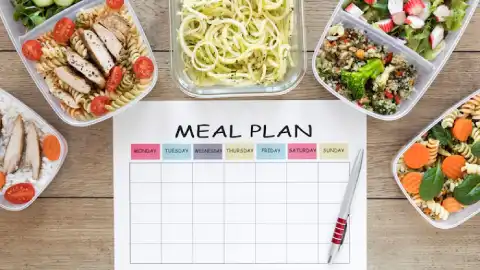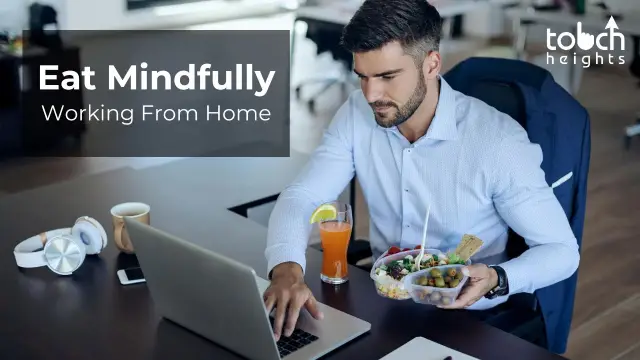We’ve all begun eating at home since the Coronavirus and lockdown. Takeaway and junk food consumption have peaked. People began flocking to fast food restaurants and fast food franchises when they opened, ordering every meal of the day. Given the rise of junk food, we must begin following mindful eating strategies.
Mindfulness in eating is more than simply eating healthy; it is eating in such a manner that good food benefits your body. It is knowing what you consume rather than eating whatever you are told is healthy. Working from home with access to the refrigerator, solitude, and boredom may all lead to poor eating habits. Here are a few tips to help you eat more healthfully and consciously.
Make a Plan

Planning your meals ahead of time is an important component of eating wisely and thoughtfully. Create a routine since it will not only help you in life but will also keep you healthy. Try to get up early and cook yourself some breakfast, as well as prepare the remainder of your meals.
Planning will not only make your day simpler, but you will also learn about the ingredients and what you are preparing while you prep your meals.
Snacks should be eaten in smaller portions

Snack bingeing is a vice that we have all committed at least once in our life. You must have binged on a bag of chips or a handful of chocolates while watching a movie, series, or playing video games.
Especially if you have snacks throughout the day, eat smaller quantities of them to keep your eating intake to a minimum, especially if they are healthy snacks like granola bars. For example, if you regularly eat a large bag of chips, try eating 6 chips first, then 6 more after a while whenever you feel like munching again.
Understand the Distinction Between Restlessness, Boredom, and Hunger

There is a significant difference between being truly hungry and being bored or restless. When you’re bored or restless, you want to do something. Mostly, your legs lead you to the refrigerator for some eating. You should eat only when you are truly hungry and not bored.
When you’re bored or restless when you eat, you eat a lot without thinking because you’re bored. So make sure you only eat when you are truly hungry.
Stock up on nutritious snacks

Just like you should never go grocery shopping hungry, you should have nutritious snacks in your home. We’re doing away with last-minute decisions in favor of an inner knowledge that we have nutritious food on hand for when we need it.
Slow Down And Take Your Time With Your Food

Instead of gulping down your food, you should take your time and savor it. People nowadays have begun to watch a movie or series while eating, which causes them to eat excessively. Slow down and concentrate on your food if you want to be healthy and eat healthy.
Taste the meal you’re eating, each small bite, and enjoy it. People in Indian culture eat with their hands because it is thought that doing so aligns our bodies with the five elements of nature. Indians concentrate on their meals, savoring each grain of food.
Increase Your Fluid Consumption

We’ve said it before, and we’ll say it again: remote workers frequently acquire bad eating habits owing to boredom and restlessness. Instead of just drinking from your water bottle, incorporate nutritious beverages into your routine for a refreshing change of pace.
Begin an afternoon tea routine. Green tea provides a slight caffeine spike (far lower than coffee) as well as various additional benefits such as high antioxidants. If you enjoy sipping warm liquids but don’t want to overdo it on coffee or green tea, you can substitute caffeine-free herbal teas. You may also experiment with natural fruit juices or sparkling water. Just remember to avoid sugary or processed drinks and to drink plenty of water.
Conclusion:
If practicing mindful eating and living right now seems too challenging, it will become simpler with time. It involves unlearning old behaviors and substituting new, more advantageous habits. If it’s too challenging for you to handle alone, get assistance from a specialist. It will be easy for someone who has received training in mindful nutrition to assist you on your path.







